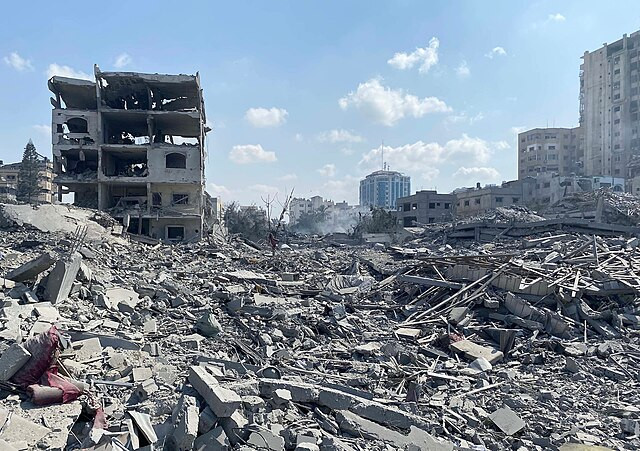Amid escalating tensions in the Middle East, high-stakes negotiations are set to take place on Thursday as the United States seeks a breakthrough that could not only end the ongoing conflict between Israel and Hamas but also avert a wider regional war. Mediators from the U.S., Egypt, and Qatar will convene in Doha, hoping to broker a cease-fire agreement that has eluded diplomats for months, despite the mounting devastation in Gaza and increasing hostilities between Israel and Iran.
The urgency of these talks has intensified following the assassination of Hamas political leader Ismail Haniyeh in Tehran and the killing of a top Hezbollah commander, both widely attributed to Israeli forces. As the death toll in Gaza surpasses 40,000, according to local health officials, the region teeters on the brink of an even more extensive conflict. The U.S. has responded by deploying additional military assets to the area, but President Joe Biden has suggested that Iran might refrain from retaliatory actions if a truce in Gaza can be achieved.
The negotiations face significant challenges, particularly with Hamas declining to participate directly in the talks. This development is a setback for Washington's efforts to secure an agreement that could prevent a retaliatory strike by Iran. However, U.S. officials remain hopeful that indirect consultations with Hamas, facilitated by Qatar, could still lead to progress.
The proposed three-phase plan under discussion would involve Hamas releasing the remaining hostages captured during its October 7 attacks in exchange for the release of Palestinians imprisoned in Israel. The plan also calls for Israel to withdraw from Gaza. However, the talks have been complicated by new conditions reportedly introduced by Israeli Prime Minister Benjamin Netanyahu, including Israel's insistence on maintaining control over Gaza's southern border with Egypt and imposing additional restrictions on Palestinians returning to their homes.
Netanyahu's office has denied reports of these new conditions, calling them "false" and insisting that Israel remains committed to the original framework proposed in May. Nonetheless, Hamas has expressed skepticism, accusing Israel of stalling and making the negotiations more difficult by adding new demands.
The Biden administration has faced growing criticism, both domestically and internationally, over its military support for Israel. Despite this, the U.S. recently approved $20 billion in new arms sales to its ally, though the Pentagon has indicated that the delivery of these weapons will take several years.
The outcome of the Doha talks is far from certain. U.S. officials, including Secretary of State Antony Blinken, have emphasized the critical need for all parties in the region to avoid actions that could undermine the chances of reaching a cease-fire. CIA Director Bill Burns and President Biden's top Middle East adviser, Brett McGurk, are among the key figures involved in the negotiations, underscoring the high level of U.S. commitment to resolving the conflict.
Hamas, while not directly participating in the talks, has indicated that it might be willing to reconsider its stance if Israel presents a more favorable deal. This suggests that the dynamics of the negotiations could shift, depending on the proposals put forward.




